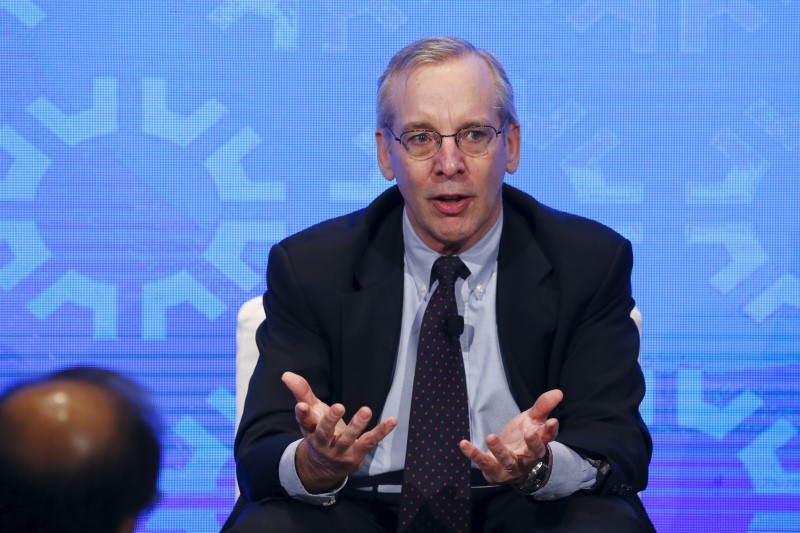By Dan Burns
NEW YORK (Reuters) - Financial conditions have tightened considerably in the weeks since the U.S. Federal Reserve raised interest rates and monetary policy makers will have to take that into consideration should that phenomenon persist, a top Fed official said on Wednesday.
In addition, the weakening outlook for the global economy and any further strengthening of the dollar could have "significant consequences" for the health of the U.S. economy, William Dudley, president of the Federal Reserve Bank of New York, told MNSI in an interview.
"One thing I think we can say with more confidence is that financial conditions are considerably tighter than they were at the time of the December meeting," said Dudley, a permanent voter on the Federal Open Market Committee, the Fed's monetary policy arm.
"So if those financial conditions were to remain in place by the time we get to the March meeting, we would have to take that into consideration in terms of that monetary policy decision," he said.
The Fed at its December meeting lifted its benchmark interest rate for the first time since 2006, and policymakers signaled that as many as four additional rate hikes were in the cards for 2016.
Few investors and private economists see that as a realistic trajectory for interest rates, however, and at its subsequent meeting, last week, the Fed acknowledged that global financial market turbulence in the weeks following its rate hike could be clouding the outlook.
"The committee is closely monitoring global economic and financial developments and is assessing their implications for the labor market and inflation, and for the balance of risks to the outlook," the FOMC said in a statement at the conclusion of the meeting.
Dudley's comments to MNSI were the latest nod from a Fed official to worries about tightening financial conditions. Global stock markets have fallen sharply in the weeks since the December hike, and terms of credit for businesses in particular have become more expensive.
Federal Reserve Bank of Dallas President Robert Kaplan told Reuters last week he is paying particular attention to the widening of so-called credit spreads in the market for high-quality corporate bonds.
The yield on U.S. investment grade bonds has mushroomed relative to safer U.S. Treasuries to the widest since July 2012, according to Bank of America Merrill Lynch (N:BAC) Fixed Income Index data. That indicates investors are demanding a richer premium to own these securities relative to Treasuries and signals that corporate borrowing costs are on the rise.
And in the Fed's own quarterly Senior Loan Officer Opinion Survey released earlier this week, banks around the country signaled they expect to tighten lending standards somewhat for business and commercial property loans in 2016.
Dudley's remarks on Wednesday gave a slight boost to U.S. stock prices, which rose about 0.3 percent in early trading. Their bounce was modest relative to the 1.9 percent drop in the benchmark S&P 500 Index (SPX) on Tuesday.
U.S. Treasury prices fell, with their yields rising, following data from a private payrolls processor showing private employers added 205,000 jobs in January, a signal that any pause in economic growth has yet to seep into the U.S. labor market.
Dudley said in the MNSI interview that despite growing concerns about global conditions and their potential effect on the U.S. economy, policymakers are not ready to draw conclusions about the path for U.S. monetary policy.

The FOMC next meets on March 15 and 16. Interest rate futures markets assign very little probability to another rate increase at that meeting.